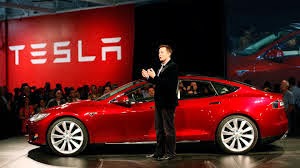
The automotive market is currently undergoing and adapting to some of the biggest changes it will have ever experienced, as more and more electric vehicles (EVs) are introduced. With the UK government’s plan to ban the sale of all new petrol and diesel carts from 2040 onwards, manufacturers are increasing their output of EVs to ensure they are fully prepared for the future. This will likely have consequences for how car buying habits change as well.

Additional Considerations to Make
When buying a petrol or diesel car there will be many considerations you need to make, such as the emissions, fuel, tax and insurance costs and more. With an EV you don’t need to worry about emissions, while tax and fuel costs will be a lot lower (you’ll still need to pay for the electricity powering the car). However, you will need to think about where and how you can charge the car and costs for any additional equipment required. This could result in brand loyalty when consumers buy a new EV if they don’t want to fork out for a fresh charging socket, for example.
Researching a New EV
According to research, by 2020 around 40 per cent of new car buyers will be millennials. Of these, 88 per cent research their next car purchase online, reading reviews and comparing options, with fewer heading direct to a dealership. For this reason, drivers of EVs are likely to have more knowledge about any car they buy and what’s available, with manufacturers needing to provide all such data accurately. Especially after the Volkswagen emissions scandal, drivers value honesty and transparency more than ever.
HPI Checks
It’s a good idea to undertake an HPI Check when buying any used vehicle to ensure there are no hidden problems with it. For EVs, HPI checks may need to change as well, to include further checks that cover the battery life or range, if possible. Existing checks included such as number of previous owners and valuation will still be useful.
















